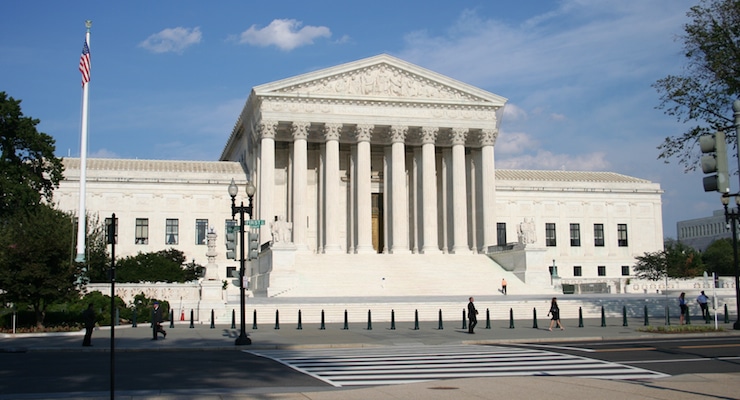

The U.S. Supreme Court (SCOTUS) building as viewed from across NE 1st Street.
The Supreme Court on Thursday upheld the use of affirmative action, or the use of race in college admissions at the University of Texas. The court’s 4-3 decision and rejection of a challenge brought by a white woman to the affirmative action program marks the second time the court has affirmed the use of race in the admissions process.
The high court previously punted on the bigger constitutional issue in a similar case argued roughly three years ago, but on Thursday upheld the university policy as “lawful under the Equal Protection Clause.” The dissent tore into the decision as fundamentally “discriminatory” by nature.
“[I]t remains an enduring challenge to our Nation’s education system to reconcile the pursuit of diversity with the constitutional promise of equal treatment and dignity,” the majority opinion said.
The university considers race among many other factors in admitting the last quarter of incoming freshmen classes. Texas fills most of the freshman class by guaranteeing admission to students who graduate in the top 10% of their Texas high school class. However, the challenger’s grades were significantly better than the admitted applicants.
In a scathing dissent, Justice Samuel Alito called the program “discriminatory” and slammed the decision to uphold the policy.
“Even though UT has never provided any coherent explanation for its asserted need to discriminate on the basis of race, and even though UT’s position relies on a series of unsupported and noxious racial assumptions, the majority concludes that UT has met its heavy burden. This conclusion is remarkable—and remarkably wrong,” he wrote.
However, the majority opinion said the university should also continue to use data to “scrutinize the fairness of its admissions program.”
“The Court’s affirmance of the University’s admissions policy today does not necessarily mean the University may rely on that same policy without refinement,” opinion said:
The most damning journalistic sin committed by the media during the era of Russia collusion…
The first ecological study finds mask mandates were not effective at slowing the spread of…
On "What Are the Odds?" Monday, Robert Barnes and Rich Baris note how big tech…
On "What Are the Odds?" Monday, Robert Barnes and Rich Baris discuss why America First…
Personal income fell $1,516.6 billion (7.1%) in February, roughly the consensus forecast, while consumer spending…
Research finds those previously infected by or vaccinated against SARS-CoV-2 are not at risk of…
This website uses cookies.